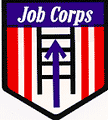|
Students select areas of concentration from among:
Auto Brakes and Alignment: In this course
students learn drum and brake service, wheel alignment, wheel balancing,
lubrication, struts, front suspension rebuilding, and power steering
repair.
Auto Transmission Repair: In this course
students learn the repair and maintenance of standard and automatic
transmissions, air conditioning, and power train components.
Auto Tune Up Electrical Systems: In this course
students learn basic tune-up procedures, repair of repair of starting and
charging systems, and carburetor and fuel system diagnosis.
On
the job, automotive mechanics repair and service automobiles and other
gas-powered vehicles. They
identify and fix problems with cars and trucks and do repairs to keep the
vehicles in good condition and running smoothly. Automobile Mechanics have many duties, depending on the size and
kind of shop in which they work. In
smaller shops, mechanics do all kinds of repair work, like simple engine
tune-ups to the tearing down, repairing and rebuilding of complete
power systems. They also
service and repair electrical systems; align and service suspension,
braking and steering systems; repair and adjust transmissions and
differentials; repair and service air conditioning, heating and
engine-cooling systems; and do all necessary mechanical checks. In larger shops, some of this work may be done
by specially trained mechanics, who mostly do one type of repair or
service and may be assigned by their specialty, such as brake repairers,
transmission mechanics or front-end mechanics.These specialists are assigned to do other jobs, but they must make sure all of the work is done.
Mechanics often have to work in awkward, cramped positions. Also, mechanics are often exposed to oil, grease, harsh
chemicals, and cleaning products. It is very important that mechanics pay
close attention to safety. Problems
could include burns from hot engines, cuts from tools and
sharpedged parts and flying particles from electric grinders.
A lot of the work done by Automobile Mechanics is very physical and
hard on the body. Many of the
parts which must be removed and repaired are very heavy, but hydraulic and
electrical jacks and hoists (pulleys) are used for lifting heavy parts,
such as engines, transmissions and differentials. Most
mechanics have to buy their own tools. As an apprentice, the mechanic may have to spend up to $500 or more
on tools.By the time they
reach journeylevel, a mechanic may have spent up to $10,000 on
tools. Mechanics with a specialty like those who work on foreign
cars may spend even more on tools because foreign cars need metric tools.
In small shops, there are few opportunities for advancement. In larger shops, repairers with several years of experience may
advance to supervisor or shop manager.
Automobile Mechanic jobs will grow a little faster than average. However, in most areas of the State, there are currently very many inexperienced mechanics available. There will be a need for experienced mechanics who know about these complex components, such as emission control systems. The opportunities for jobs are better for mechanics experienced in all kinds of automotive service and repair and for those possessing State licenses to service smog, brake and lamp systems.
| California Median UNK |
Mid-Range 1998
(25th to 75th percentile) $11.43-$19.41 |
| Note that many jobs for individuals with little or no experience start at or near minimum wage. |
To enroll in this San Jose Job Corps Course:
Automotive Brakes and Alignment: 510 TABE Math/Reading score, OR GED/HS diploma.
Automotive Transmission: 510 TABE Math/Reading score, OR GED/HS diploma.
Automotive Tune-Up: 540 TABE Math/Reading score, OR GED/HS diploma.
Job specific skills: Most employers hire trainees with at least a high school diploma who are familiar with basic automotive repair. Some employers prefer those who have graduated from vocational courses from community colleges or technical colleges or from an adult education program, such as available in Job Corps. Formal apprenticeship programs, which combine formal classroom and on-the-job training, are available in some areas.
Back to Top
|



